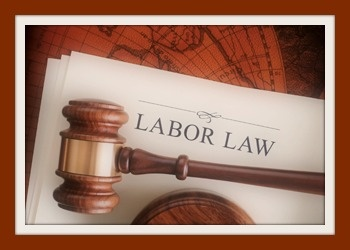
California’s Labor Code 132(a) forbids employers from retaliating against employees who have filed or intend to file for workers’ compensation payments. Employers who do this, risk criminal prosecution for a misdemeanor offense under state law.
Compensatory damages, such as lost income, back pay, attorney expenses, and potential reinstatement, may also be granted to injured workers.
Workers’ compensation discrimination claim
Under Labor Code 132(a), when you file a discrimination claim in workers’ compensation you must prove that:
- You fired, threatened to fire, or discriminated against an employee due to the injury or workers’ compensation claim.
- You are singled out for unfair treatment due to the injury or claim.
- You filed or intended to file a compensation claim, or because you received a rating, award, or won a compensation case.
Meaning of workers’ compensation discrimination
Any treatment form that disadvantages you could be deemed discrimination. This typically entails firing an employee without cause or threatening to do so. However, it might also consist of:
- Reducing the employee’s hours worked, their wage, or hourly rate.
- Scheduling the employee for a period when their employer is aware that they will be unavailable.
- Reporting you to immigration officers for particular violations.
- Constructive dismissal.
- Ending an employment agreement.
- Denying your benefits.
- Inciting other workers to discipline the employee.
Discrimination need not always be carried out by the employer. For instance, even if an employee is never terminated by the employer, making threats against them may still constitute unlawful discrimination.
Damages You Could Receive After a 132(a) Claim
Specific damages are provided for under California employment law. If you experience discrimination, you could be entitled to:
- Up to $10,000 in additional remuneration.
- $250 in costs and expenses.
- Compensation for lost wages and benefits.
- Job reinstatement.
Serious and Willful Misconduct
If an employer willfully acts or does not act, knowing that a substantial injury would probably ensue, that employer has engaged in serious and willful misconduct. An employer could know the serious safety risks in its production but decide not to address them.
Workers’ compensation payouts for injured employees may be enhanced by up to 50% where the employer engaged in serious and intentional misconduct. However, the overall award cannot be greater than what you could have been entitled to in a conventional civil action.
Filing a California Labor Code 132(a) Case
The California Workers’ Compensation Appeals Board handles complaints of workplace discrimination (WCAB). By filing a claim with the WCAB, you could demand reimbursement, reinstatement, or increased pay. From the date when the discrimination happened or dismissal, you have one year to file a lawsuit.
The WCAB processes requests for reimbursement, reinstatement, and higher remuneration. The WCAB cannot, however, decide whether the criminal complaint against your employer is genuine. The Division of Labor Standards Enforcement may receive a complaint regarding the criminal violation from the appeals board, office of the public prosecutor, or you.
Contact an employment attorney if you want to file a workers’ compensation discrimination case or want to know if your rights have been violated.